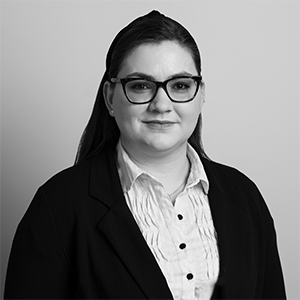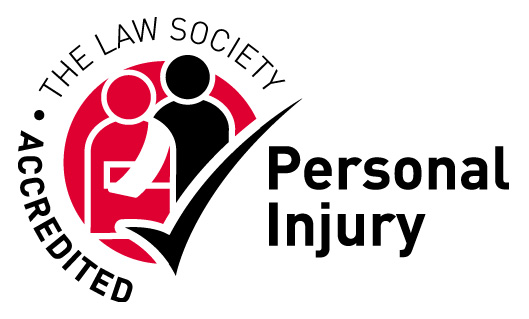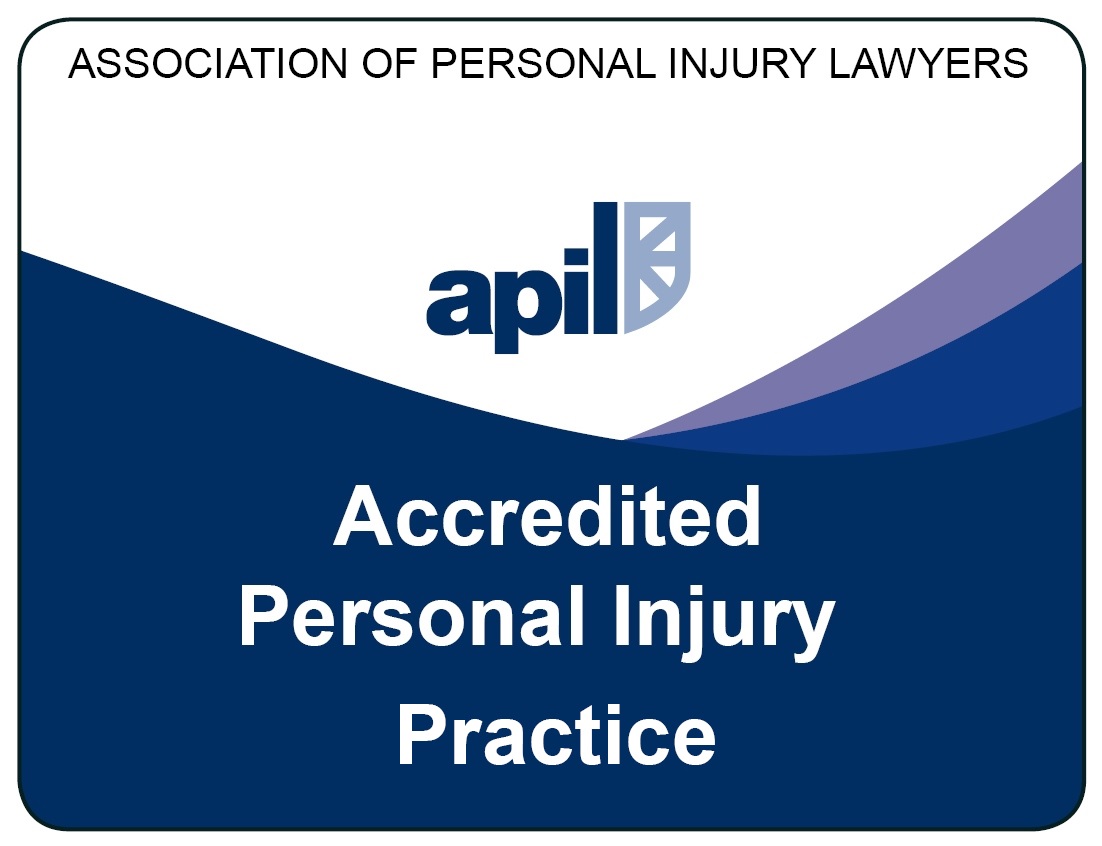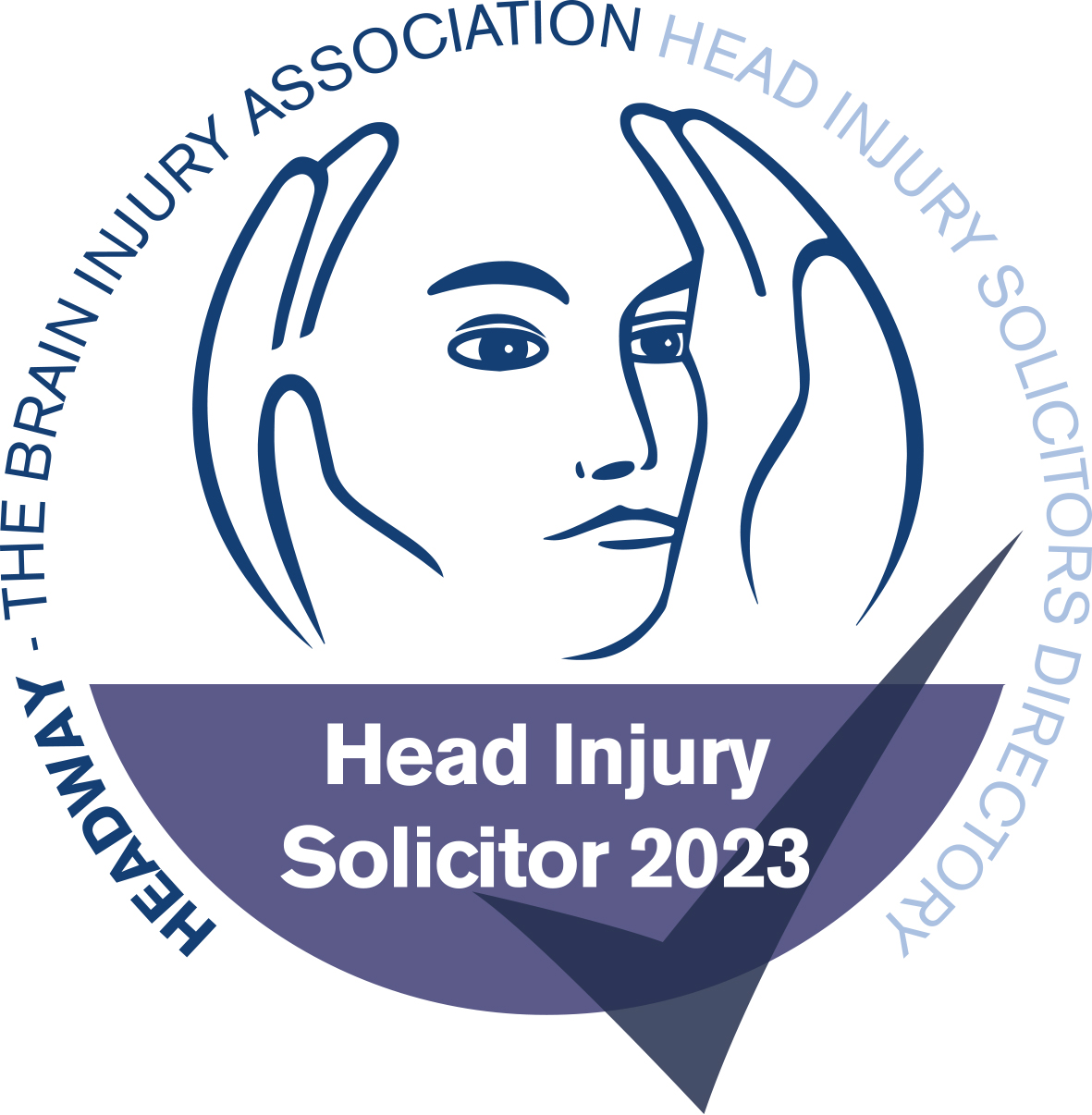




The Definitive Guide To Accident At Work Claims
By Beth Morris, Trainee Solicitor at Jefferies Solicitors

The process for making a personal injury claim following an accident in the workplace
1. The first step in making any claim for personal injury is to contact a firm of personal injury solicitors. Once we receive your enquiry, our specialist new claims team will discuss the full details of your accident with you, including the circumstances of how the accident occurred, what injuries you sustained and what medical treatment you have received. They may also ask you to provide documents in support of your claim, for example, photographs of your injury.
2. Your claim will then be assessed in order to determine whether there are reasonable prospects of succeeding with the claim. This assessment is based on several factors; liability (does your employer owe you a duty of care and have they breached this duty?), causation (has this breach caused you to sustain a personal injury?) and quantum (does your personal injury meet the minimum level required?). Provided we think these criteria will be met, we will offer to represent you under a ‘no win no fee’ agreement. Our new claims team will go through this agreement with you and send you the formal paperwork.
TRY THE ONLINE ELIGIBILITY CHECKER
3. Once we have received your signed paperwork back, we will conduct the necessary checks to start your claim, including ID verification and confirming your employer’s insurance details. Your claim will then be passed across to one of our experienced Case Handlers who will have ongoing conduct of your personal injury claim. They will be in contact with you to discuss your claim and will apply for copies of any records which they consider would be helpful for your claim, for example GP and Hospital records. Your Case Handler will then officially submit your claim to your employer’s insurance company setting out the full details of your claim, including the circumstances of the accident, the injuries you sustained, what medical treatment or rehabilitation you have had and the reasons why we believe that your employer was at fault for the accident.
4. There are 2 potential ways that your claim can be submitted and this will usually depend up on the value of your claim and/or the complexity.
Most claims will be made by submitting a Claims Notification Form via an online portal. Once submitted, your employer’s insurance company are required to acknowledge the claim the next day after receipt. They then have a period of 30 days in which to investigate the claim and to respond with their stance on liability, i.e. whether they admit or deny that your employer was at fault for the accident. In some cases the insurance will be unable to complete their investigations within the 30 day period and if this is the case they will notify your Case Handler and the claim will exit the portal and the insurer will have an extended period of time in which to return to us. Should this occur then your Case Handler will be in touch with you.
The other method of submitting your claim is by sending what is known as a Letter of Claim direct to your employer’s insurance company. They then have a period of 21 days in which to acknowledge receipt and 3 months thereafter in which to investigate the claim and to respond with their stance on liability.
5. After this stage, the next steps in your claim will much depend on whether liability for the accident has been admitted or denied.
Denial of Liability in accident at work claims
If you receive what is known as a denial of liability for your claim this means that the insurance company does not accept that your employer was at fault for your accident. It does not necessarily mean that your claim will not succeed however, we have represented a large number of client’s who have received denials of liability and who have gone on to have successful claims, it could mean that your claim may take longer to reach a conclusion though as we may need to issue proceedings or obtain documents from the insurers.
In the event that liability is denied, the insurance company are obliged to provide an explanation as to why they are denying liability and disclose documentary evidence in order to back up this explanation. Such documents may include records of inspections, training records, cleaning records, accident report forms or witness statements, however this will vary from case to case. In the event that they are not forthcoming with disclosure of these documents, your Case Handler may be required to make an application to the Court asking that the Court make an Order for Pre-Action Disclosure. Provided the Court grant the Order, the insurance company would then be ordered by the Court to provide us with copies of these documents within a specified period of time. Once we have received all the documents, your Case Handler would then review these in detail and be in contact with you to discuss these and the next steps. It may also be necessary to instruct a Barrister to review the documents and your claim as a whole in order to provide independent advice as to the prospects of succeeding with the claim in light of the all the evidence available. If your Case Handler considers that the documents provided do not support the insurance company’s view in respect of liability then they may ask them to reconsider their decision. In the event that the documents provided do support the decision and your Case Handler and/or a Barrister considers that there are no longer reasonable prospects of succeeding with your claim then they will be in contact with you to discuss this and whether to continue with the claim.
Contact Our Experts6. If we continue with your claim then the next step would be to organise a medical appointment for you.
Admission of Liability in accident at work claims
In the event that liability for your accident is admitted, this means that you are likely to receive compensation for your injury depending on whether we can prove that the accident caused your injury. In order to prove this we obtain a report from an Independent Medical Expert to prepare a report on the cause and extent of your injuries.
7. Medical Appointment
It may be necessary for you to be seen by more than one expert if you have sustained multiple injuries. The experts you would need to see are dependent on the types of injuries which you sustained in the accident. For example, if you had sustained a fractured bone then we would arrange for you to be seen by an orthopaedic expert whereas if you had sustained a burn injury or laceration resulting in a scar we would arrange for you to seen by an expert who specialises in plastic surgery. At the appointment, the expert would ask you a wide range of questions, for example they would likely ask about the circumstances of the accident, what injuries you sustained, what treatment you received, what ongoing symptoms, if any, you are continuing to suffer from as a result of the injuries and what impact the injuries have had on your day to day life. The expert may also want to take photographs of your injuries as well as examine you or perform tests in order to ascertain any lasting impact of your injuries.
8. Each expert would then produce a report detailing the injuries you sustained, what treatment you received, what the impact of these injuries have been and any ongoing symptoms you are suffering from. The expert may also include any photographs they took or the results of any examinations or testing they did. At the end of the report, the expert would then give their opinion as to your likely long-term prognosis. In same cases the expert may recommend that you undergo further scans or rehabilitation before they are able to make their final prognosis. In these cases, we would need to arrange for these scans or rehabilitation to take place and would then return to the expert and ask them to produce a supplementary report providing their final prognosis in resect of your injuries. Once each report is received, your Case Handler will review it before also sending you a copy. You would then need to read through each report in detail in order to ensure that they are accurate and contain details of all your injuries and ongoing symptoms.
9. Once all the necessary medical reports have been received and any rehabilitation treatment has been completed, your Case Handler will then proceed to quantify your claim. They would consider the injuries you sustained along with any ongoing symptoms and your likely long-term prognosis, as provided by the medical experts , in order to determine the approximate amount of compensation they think would be reasonable for you to receive for your injuries. In order to do this your Case Handler will refer to case law where similar injuries have been sustained and the JC Guidelines which are guidelines used by the Judiciary when valuing claims in Court.
10. If you have required any care or assistance from others or if you have incurred any financial losses, such as travel costs, loss of salary or damaged property as a result of the accident it is important to mention these to your Case Handler so that they can be included in your claim. It may also be necessary at this stage to instruct a Barrister to review the reports and your claim as a whole in order to provide independent advice as to the estimated value of your claim based on all the evidence available.
11. Once your claim has been quantified, the next step is to try and negotiate a settlement of your claim with your employer’s insurance company. Your Case Handler will get in contact with you to discuss this and the approximate value of your claim before then entering into negotiations with the insurance company. Your Case Handler will keep in regular contact with you during the course of these negotiations and once you are happy with the amount of compensation proposed by the insurance company, your Case Handler would then agree settlement of your claim in accordance with your instructions. It is important to note that once a settlement has been agreed, it is not possible to go back and ask for more money at a later date. In the event that a settlement agreement cannot be reached, it may be necessary to ask the Court to determine the amount of compensation, however, more often than not, this is not needed.
12. Once settlement of your claim has been agreed upon, we would generally expect your settlement monies to be received within 6 – 8 weeks.
ACCIDENT AT WORK CLAIMS GUIDE, NEXT STEPS
If you have experienced an accident at work then you might be entitled to claim compensation. Our experts at Jefferies are ready to help you.
To learn more and to discuss your potential claim in confidence, contact our team on 0800 342 3206. Alternatively, complete our online contact form to arrange an initial no-obligation telephone consultation with a member of our expert team.
Where next? Read:
Five-figure settlement for fall at work
[DISPLAY_ULTIMATE_SOCIAL_ICONS]





